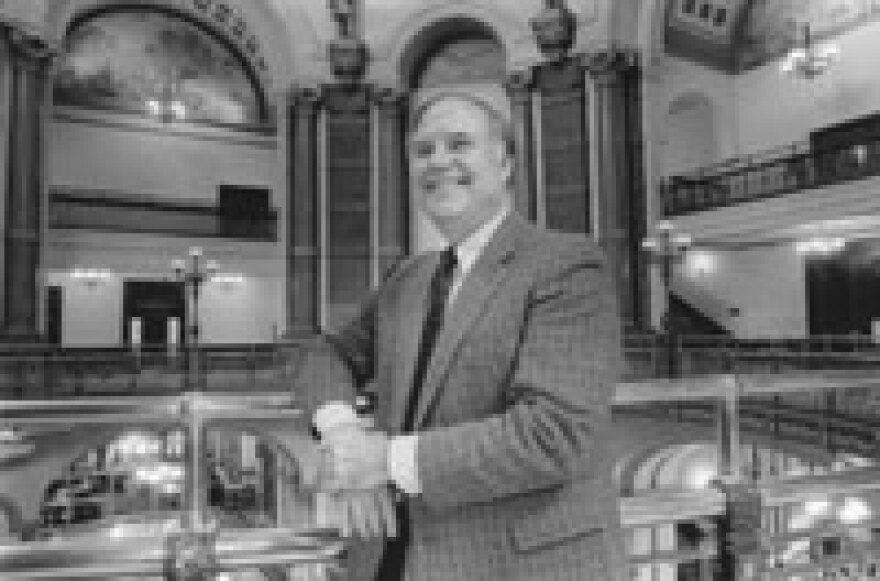The notion of democratic government rests on a very simple principle: Ordinary men and women have the capacity to govern themselves. They don't need kings or emperors or high priests to establish the rules by which they can live together amicably, settle their differences and provide for their common needs.
That faith in the wisdom of everyday people carries a significant proviso, however. To make sound judgments, folks need information about the issues and personalities in the public arena. The more extensive an individual's knowledge about a particular matter, the better equipped that person is to fulfill a citizen's role in a democracy.
In the next few weeks, Illinois lawmakers will be able to show how well they have grasped that basic lesson from Civics 101 by supporting two measures aimed at making it easier for people to keep up with public business. The pair would strengthen existing laws intended to guarantee citizen access to information about government decision-making at the local level, where a host of taxing bodies provide myriad services.
One proposal would beef up the Illinois Open Meetings Act by requiring public bodies to keep verbatim records of executive session meetings through audiotapes, videotapes or transcripts by a court reporter.
The act's premise is that the people's business should be conducted in the open, but the law also recognizes confidential discussions may be warranted on certain issues, such as personnel matters, real estate acquisition or pending lawsuits. In those cases, a governing body may go into executive session to talk privately about the issue.
But the bill's supporters contend that local officials, after going into executive session for a valid reason, too often get into topics that should be aired in public.
If someone challenges a closed meeting now, a judge reviews the minutes of the session that the body must keep to see whether the law was violated. But the notes may be too cursory to provide a sure answer, forcing attorneys for both sides to question participants about what they recall of the discussion. If the session were taped, however, the judge could review the tape in private, know exactly what was discussed and determine more readily whether a violation occurred.
The likely result? Fewer improper discussions behind closed doors.
The other proposal, championed by Attorney General Jim Ryan, would toughen the Freedom of Information Act. That law provides that government documents in general are public records, available for inspection and copying, with certain specified exceptions.
Ryan and other open access advocates argue the exceptions have been interpreted too broadly by some local officials. Moreover, they contend, the law has no teeth to penalize officials who simply ignore its requirements.
To deal with the problem, the bill would establish a public records section in the attorney general's office. Disputes about whether a government document is a public record could be referred to the office, which would issue an advisory opinion on the question. Either side still could take the question to court, but if the citizen seeking the disputed record prevailed, the local government would have to pay attorney fees.
Again, the likely result would be increased access to public records.
The proposals are not without their critics, who contend both could lead to the release of clearly confidential information and would impose additional costs on local government.
Neither argument outweighs the benefits of more open government. Word-for-word records of closed-door meetings, for example, would not be released until a judge determined the discussions strayed from the supposed topic of the executive session. Cost would be minimal: a tape recorder (if the board already didn't own one) and some cassette tapes.
In like fashion, the attorney general's opinion on disputed records would provide guidance to the public body and the citizen embroiled in the dispute, but not impose direction on either. As for cost, a local government would be forced to pay legal fees only if a judge determined its denial of access was not proper.
On a related note, the legislature also has the chance to help provide citizens with front-row access to government in action through funding support for the Illinois Channel, a C-SPAN-type operation under consideration for Illinois.
For more than a year, the Institute for Public Affairs at the University of Illinois at Springfield, assisted by a statewide advisory board, has been studying how to bring a statewide public affairs television network into being.
(In the interests of full disclosure, this writer would note that he is on the advisory board and serves as a paid consultant for the study.)
Dubbed the Illinois Channel, the proposed network hopes to provide gavel-to-gavel coverage of General Assembly sessions and committee meetings, oral arguments before the state Supreme Court, news conferences with the governor and other state officers, and a host of other public affairs events. Like C-SPAN, the channel would offer unedited, unfiltered, nonpartisan coverage that would help citizens across the state become better informed about state government issues and activities.
Planners are asking lawmakers for $6.2 million in state funding in the fiscal year starting July 1 to get the channel on the air by next January, $3.2 million for equipment and other capital needs and $3 million for operating expenses.
That's a modest request when measured against the channel's potential for public education and engagement.
Like the proposals to strengthen the Open Meetings and Freedom of Information laws, the Illinois Channel is an investment in the informed citizenry so essential to a democracy.
Charles N. Wheeler III is director of the Public Affairs Reporting program at the University of Illinois at Springfield.






